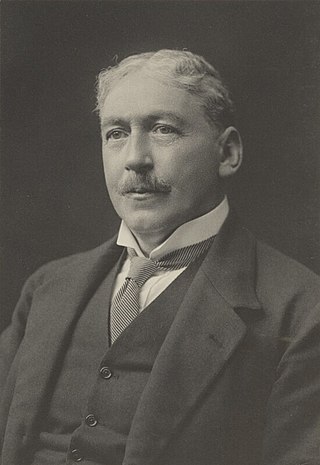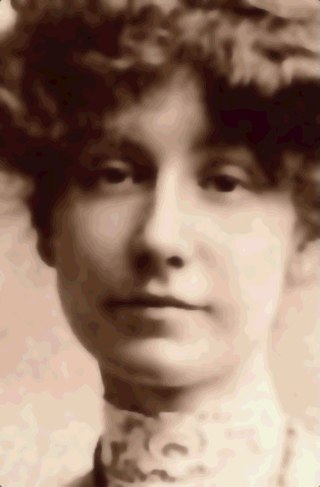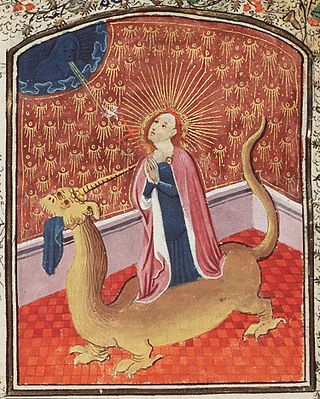See also
- Margery (disambiguation)
- Marjorie
- Marjory
- Margaery Tyrell, character from A Song of Ice and Fire
Margery is a female given name derived from Margaret, which can also be spelled as Marjorie, Margaery or Marjory. From the Old French, the Middle English forms of Margaret equally derive from the Greek for pearl. Margery, Marjorie and Marjory in the 14th century became a medieval softened translation of French and Church Latin versions of Margaret. After the Middle Ages this name was rare, but it was revived at the end of the 19th century.[ citation needed ]

A whodunit is a complex plot-driven variety of detective fiction in which the puzzle regarding who committed the crime is the main focus. The reader or viewer is provided with the clues to the case, from which the identity of the perpetrator may be deduced before the story provides the revelation itself at its climax. The investigation is usually conducted by an eccentric, amateur, or semi-professional detective.
This article contains information about the literary events and publications of 1936.
This article contains information about the literary events and publications of 1938.

Eleanor is a feminine given name, originally from an Old French adaptation of the Old Provençal name Aliénor. It was the name of a number of women of royalty and nobility in western Europe during the High Middle Ages. The name was introduced to England by Eleanor of Aquitaine, who came to marry King Henry II. It was also borne by Eleanor of Provence, who became queen consort of England as the wife of King Henry III, and Eleanor of Castile, wife of Edward I.
'Isabel' is a female name of Spanish origin. Isabelle is a name that is similar, but it is of French origin. It originates as the medieval Spanish form of Elisabeth. Arising in the 12th century, it became popular in England in the 13th century following the marriage of Isabella of Angoulême to the king of England. Today it is sometimes abbreviated to Isa.

Henry de Vere Stacpoole was an Irish author. His 1908 romance novel The Blue Lagoon has been adapted into multiple films. He published using his own name and sometimes the pseudonym Tyler de Saix.

Margaret Gabrielle Vere Long, who used the pseudonyms Marjorie Bowen, George R. Preedy, Joseph Shearing, Robert Paye, John Winch, and Margaret Campbell or Mrs. Vere Campbell, was a British author who wrote historical romances and supernatural horror stories, as well as works of popular history and biography.

Margaret is a feminine given name, which means "pearl". It is of Latin origin, via Ancient Greek and ultimately from Old Iranian. It has been an English name since the 11th century, and remained popular throughout the Middle Ages. It became less popular between the 16th and 18th century, but became more common again after this period, becoming the second-most popular female name in the United States in 1903. Since this time, it has become less common, but was still the ninth-most common name for women of all ages in the United States as of the 1990 census.

Marjorie Fleming was a Scottish child writer and poet. She gained appreciation from Robert Louis Stevenson, Leslie Stephen, and possibly Walter Scott.
Margarete is a German feminine given name. It is derived from Ancient Greek margarites (μαργαρίτης), meaning "the pearl". Via the Latin margarita, it arrived in the German sprachraum. Related names in English include Daisy, Greta, Gretchen, Madge, Mae, Mag, Magee, Magdy, Magga, Maggie, Maggy, Maidie, Maisie, Marg, Margaret, Marguerite, Margarita, Margareta, Margarida, Marge, Margery, Marget, Margo, Margot, Marjorie, Marjory, Matge, May, Meg, Megan, Mairead, Mer, Meta, Rita, Molly, Peg and Peggy.

Margery Bodine Latimer, born in Portage, Wisconsin, was an American novelist and short-story writer. She moved to New York City before finishing college and became involved in its cultural life. Latimer published two highly acclaimed novels, We Are Incredible (1928) and This is My Body (1930), and two collections of short stories, Nellie Bloom and Other Stories (1929), and Guardian Angel and Other Stories (1932).
Marjorie is a female given name derived from Margaret, which means pearl. It can also be spelled as Margery, Marjory or Margaery. Marjorie is a medieval variant of Margery, influenced by the name of the herb marjoram. It came into English from the Old French, from the Latin Margarita (pearl). After the Middle Ages this name was rare, but it was revived at the end of the 19th century.

Rachel, meaning "ewe", is a feminine given name of Hebrew origin, popularized by the biblical figure Rachel, the wife of Israelite patriarch Jacob.

Jennifer, also spelled Jenifer or Jenefer, is a feminine given name, the Cornish form of Guinevere, that became popular in the English-speaking world in the 20th century.

Molly is a diminutive of the feminine name Mary that, like other English diminutives in use since the Middle Ages, substituted l for r. English surnames such as Moll, Mollett, and Mollison are derived from Molly. Molly has also been used as a diminutive of Margaret and Martha since the 1700s and as an independent name since at least 1720. The name was more popular in the United States than elsewhere in the Anglosphere in the 1800s due to usage by Irish-American families and by Jewish American families who used Molly as an English version of Hebrew names such as Miriam and Malka. Its popularity with Americans was also influenced by stories about Molly Pitcher, a heroine of the American Revolutionary War.

Mary is a feminine given name, the English form of the name Maria, which was in turn a Latin form of the Greek name Μαρία, María or Μαριάμ, Mariam, found in the Septuagint and New Testament. The latter reflects the original Hebrew pronunciation of the name מרים, as attested by the Septuagint. The vowel "a" in a closed unaccented syllable later became "i", as seen in other names such as "Bil'am" (Balaam) and "Shimshon" (Samson).
Marjory is a female given name, a variant spelling of Marjorie, Margaery or Margery. It is sometimes shortened to Marj.
Leigh is both an English surname and a unisex given name meaning "meadow" and "delicate".
Margery Fee is a professor emeritus of English at the University of British Columbia (UBC). From 2015 to 2017, Fee was the Brenda and David McLean Chair In Canadian Studies at UBC. She publishes in the fields of Canadian, postcolonial and Indigenous studies and Canadian English usage and lexicography.